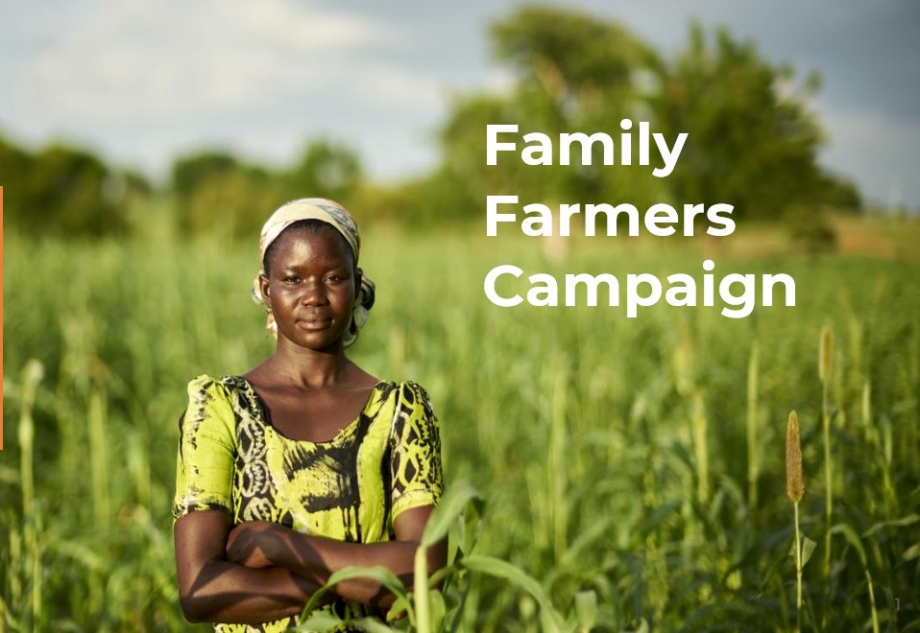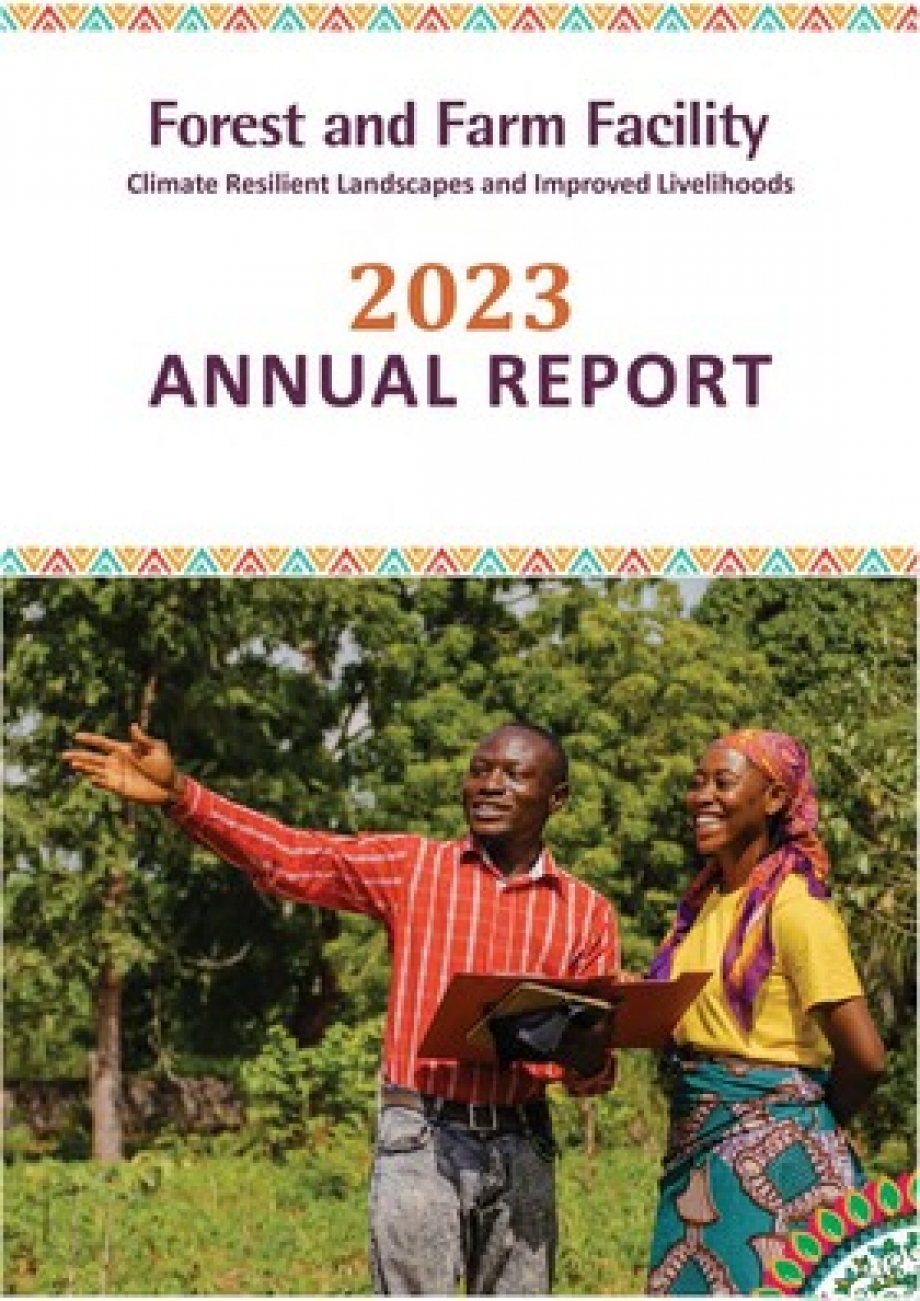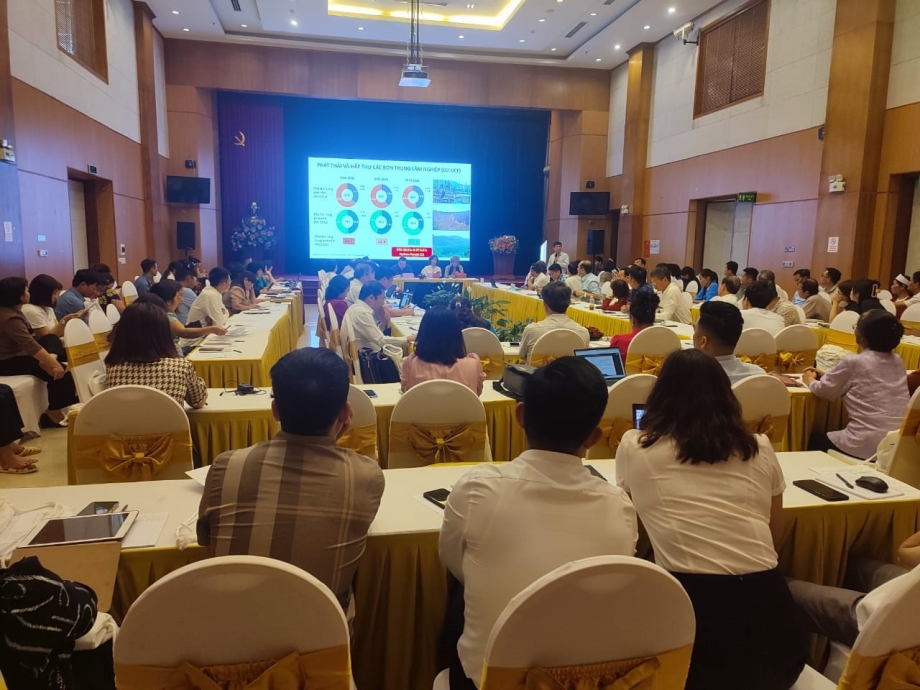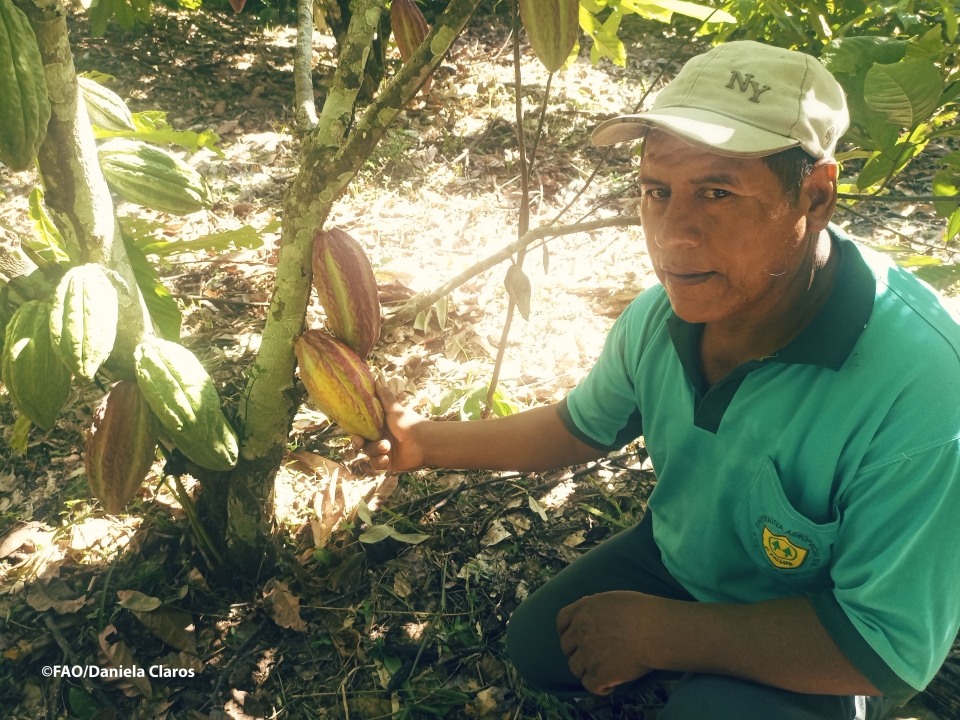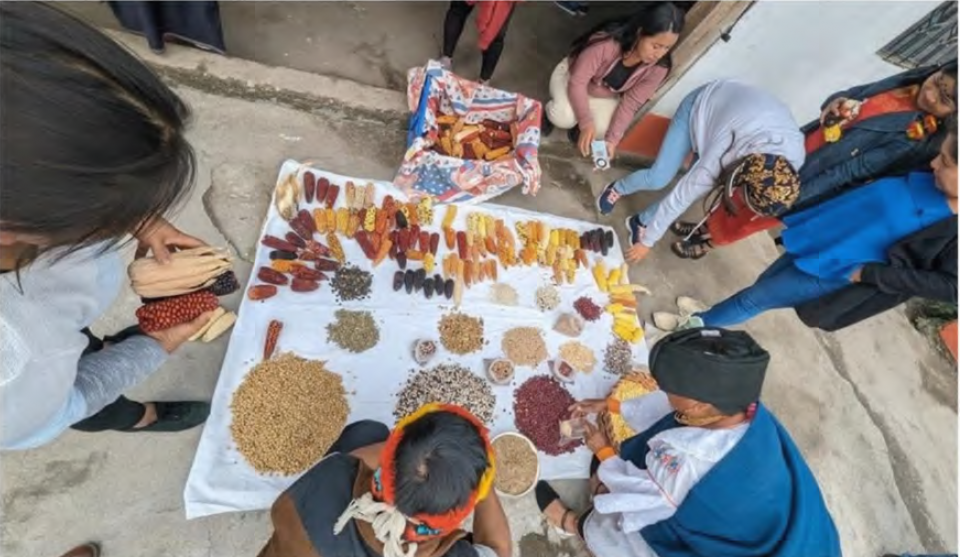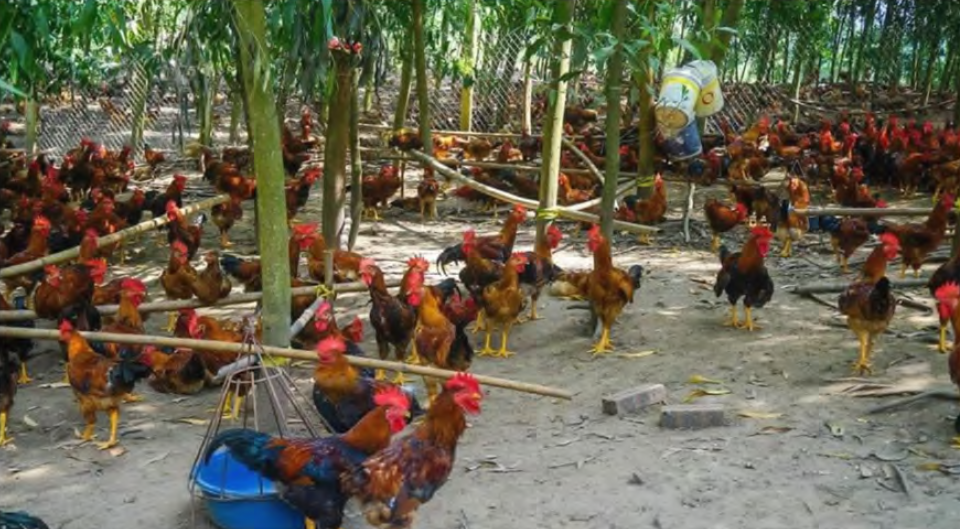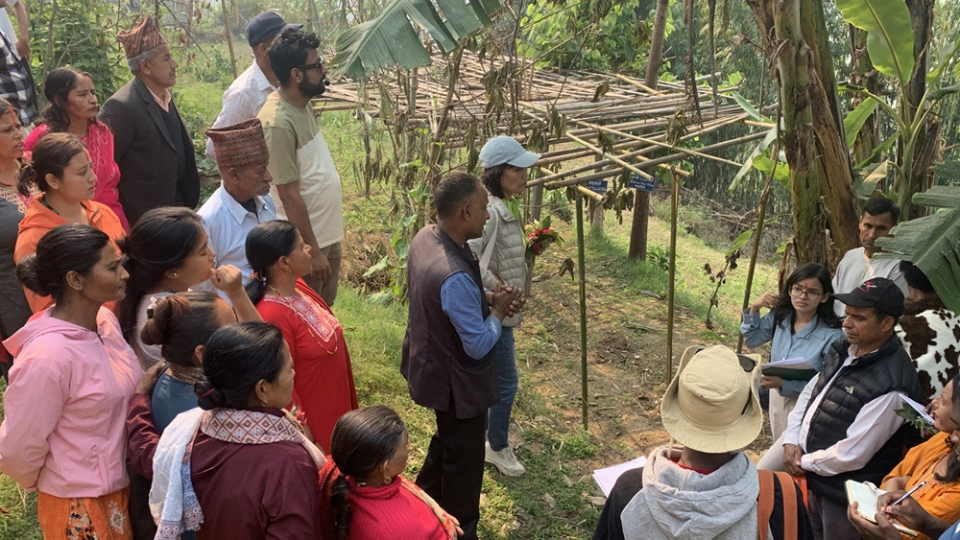El Mecanismo para Bosques y Fincas (FFF) ofrece apoyo a las organizaciones de productores forestales y agrícolas (pequeños productores agrícolas, grupos de mujeres rurales, comunidades locales e instituciones de pueblos indígenas) para aumentar sus capacidades técnicas y empresariales y para que puedan tener su papel tan importante en la lucha contra el cambio climático y en el mejoramiento de la seguridad alimentaria. El FFF también colabora con los gobiernos para elaborar mecanismos intersectoriales y procesos políticos que aprovechan la contribución de los habitantes de las zonas rurales. El FFF es una asociación entre FAO, IIED, UICN y AgriCord. Entre sus donante actuales se incluyen Alemania, la Unión Europea a través del programa FAO-EU FLEGT, Finlandia, IKEA, Suecia, los Estados Unidos de América, y los países bajos.
The Family Farmers’ Campaign on climate finance aims to strengthen small-scale family farmer networks, urging decision-makers to recognize them as key partners in sustainable food systems; centralize their role in climate and food decisions; increase their direct access to climate finance; and promote diverse, local, and nature-friendly food systems.
The FFF is supporting people to better adapt to the effects of climate change, improving resilience, fostering stronger public–private partnerships and leading the charge in combating deforestation.This report captures a wide range of achievements in these domains, all sharing a global thread of being people-centred, with impact driven by our...
A national workshop organized by the Forest and Farm Facility (FFF) is taking place in Hanoi, Vietnam to discuss ongoing work in long rotation forest plantations, carbon storage and agroforestry policy.
The two-day workshop is entitled, “Experiences from FFF Vietnam on long rotation smallholder forest plantation, sustainable forest management, agroforestry...
Forest and farm producer organizations representing the world’s smallholder farmers, Indigenous Peoples and local communities will gather in Pokhara, Nepal, from 9 – 12 April and virtually (online) to explore how to best manage the world’s agrobiodiversity.
The Food and Agriculture Organization of the United Nations (FAO) has launched a new report for International Migrants Day that explores the impact of migration on forest areas and how to ensure it has a positive effect on the environment.
Migration and forests: What state and non-state actors can do to...
In Zambia's Eastern Province lies the Nyimba district, home to a diverse array of land-use demands, ranging from agriculture to forestry, all competing for the same space. However, the communities of Nyimba have a unique relationship with the forests surrounding them. For generations, they have relied on the forests as...
Smallholder farmer organisations can harness the collective power of the world’s 1.5 billion smallholders to tackle poverty and inequality, biodiversity loss and climate change. Showcasing KoKoo Pa, a farmers’ association in Ghana, Stephen Mwangi demonstrates how strong internal governance has unlocked KoKoo Pa’s potential to become a trusted development partner.
Recognizing their indispensable role, the World Rural Forum, in collaboration with the FFF and other key stakeholders, is committed to bridge the gap to get family farming on the global climate and biodiversity agendas.

